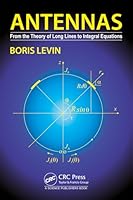
Modern Quantum Theory: From Quantum Mechanics to Entanglement and Quantum Information
- Length: 1040 pages
- Edition: 1
- Language: English
- Publisher: Oxford University Press
- Publication Date: 2023-11-30
- ISBN-10: 0199683336
- ISBN-13: 9780199683338
- Sales Rank: #1380636 (See Top 100 Books)
In the last few decades quantum theory has experienced an extensive revival owing to the rapid development of quantum information and quantum technologies. Based on a series of courses taught by the authors, the book takes the reader on a journey from the beginnings of quantum theory in the early twentieth century to the realm of quantum-information processing in the twenty-first. The central aim of this textbook, therefore, is to offer a detailed introduction to quantum theory that covers both physical and information-theoretic aspects, with a particular focus on the concept of entanglement and its characteristics, variants, and applications.
Suitable for undergraduate students in physics and related subjects who encounter quantum mechanics for the first time, this book also serves as a resource for graduate students who want to engage with more advanced topics, offering a collection of derivations, proofs, technical methods, and references for graduate students and more experienced readers engaged with teaching and active research.
The book is divided into three parts: Part I – Quantum Mechanics, Part II – Entanglement and Non-Locality, and Part III – Advanced Topics in Modern Quantum Physics. Part I provides a modern view on quantum mechanics, a central topic of theoretical physics. Part II is dedicated to the foundations of quantum mechanics and entanglement: starting with density operators, hidden-variable theories, the Einstein-Podolsky-Rosen Paradox, and Bell Inequalities, but also touching upon philosophical questions, followed by a deeper study of entanglement-based quantum communication protocols like teleportation, before giving a detailed exposition of entanglement theory, including tools for the detection and quantification of entanglement. Part III is intended as a collection of standalone chapters to supplement the contents of Parts I and II, covering more advanced topics such as classical and quantum entropies, quantum operations and measurements, decoherence, quantum metrology and quantum optics, and entanglement in particle physics.







